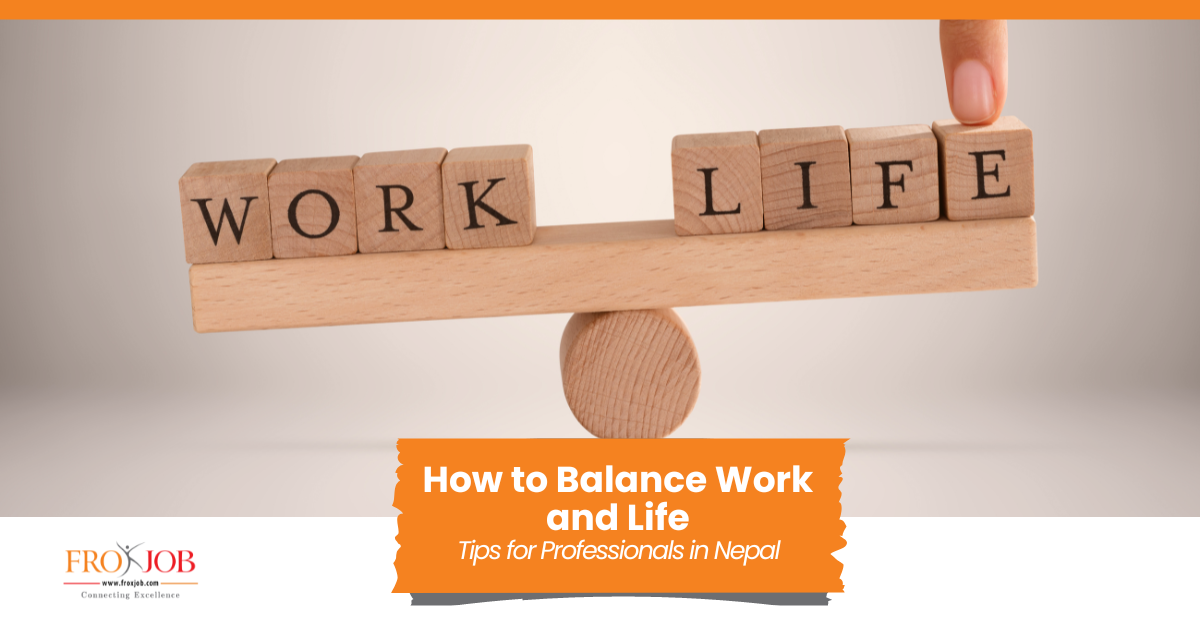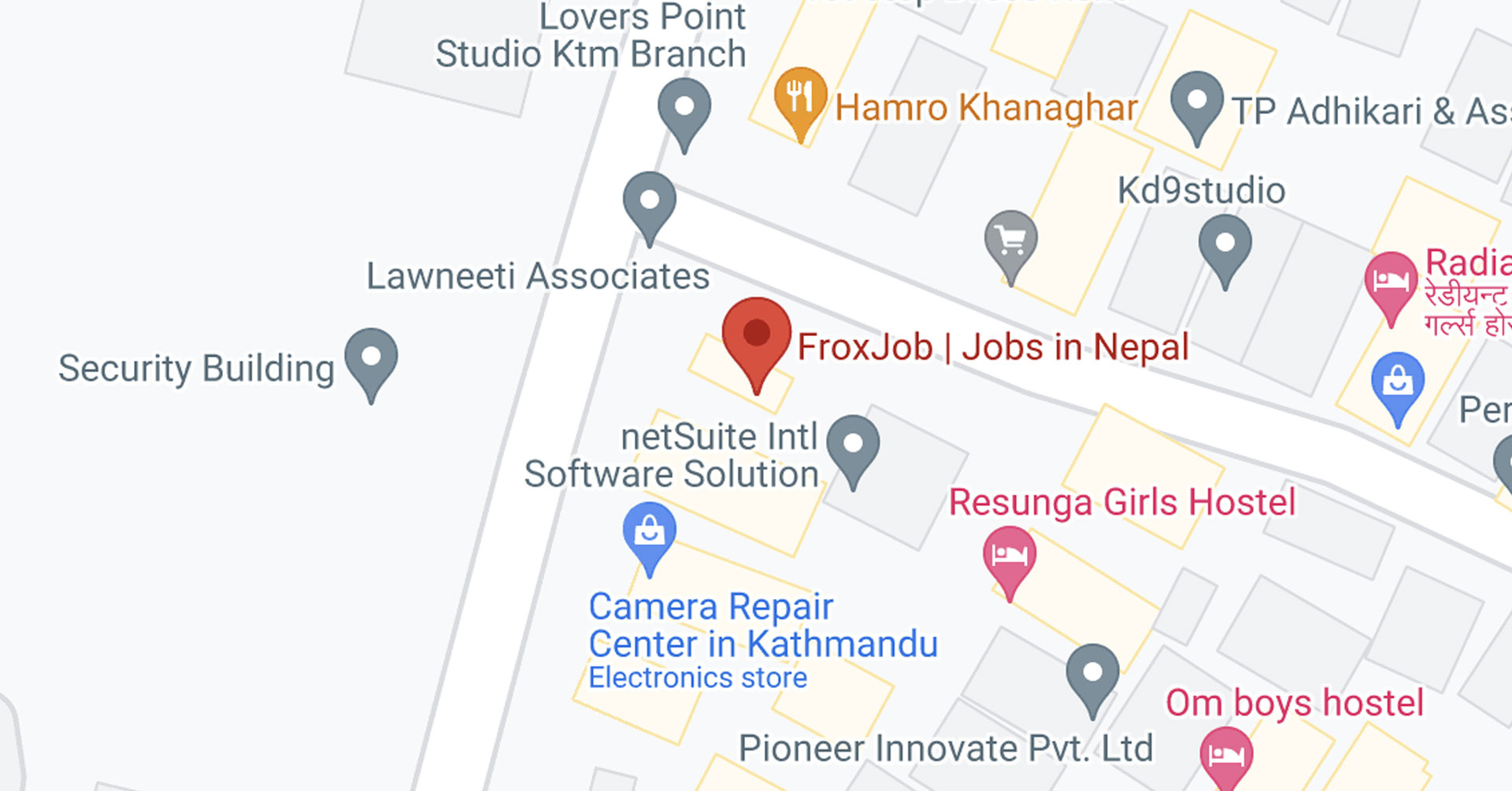How to Balance Work and Life: Tips for Professionals in Nepal

How to Balance Work and Life: Tips for Professionals in Nepal
Balancing work and life has become one of the most pressing challenges for professionals in Nepal. With growing demands in corporate roles, family responsibilities, and social commitments, achieving harmony between professional duties and personal well-being is no longer optional. It is essential for long-term success, both personally and professionally.
In this article, we share practical strategies, cultural insights, and effective tools to help professionals in Nepal maintain balance, reduce stress, and lead more fulfilling lives.
Understanding Work-Life Balance in Nepal
Work-life balance refers to the ability to manage professional responsibilities while ensuring that personal life, family, and health are not compromised. In Nepal, professionals often face unique challenges such as:
- Extended working hours in corporate and development sectors
- Long commutes
- Strong family and social obligations influenced by cultural expectations
- Limited workplace flexibility compared to global standards
Recognizing these challenges is the first step toward creating a healthier lifestyle.
Why Work-Life Balance Matters for Professionals in Nepal
Maintaining balance is not just about reducing stress. It has deeper implications:
- Improved productivity – Focused and rested professionals perform better at work.
- Better mental health – Balance reduces burnout, anxiety, and depression.
- Stronger relationships – Time with family and friends improves personal connections.
- Physical well-being – Balanced individuals are more likely to exercise, eat well, and sleep adequately.
- Long-term career growth – Sustainable work habits help professionals avoid early burnout.
Practical Tips to Balance Work and Life
1. Set Clear Boundaries
In Nepal, it is common to receive work calls or emails outside office hours. To maintain balance:
- Communicate clear availability to colleagues.
- Avoid checking emails late at night.
- Create a physical boundary between workspace and home.
2. Prioritize Tasks with Smart Planning
Professionals often waste time on unimportant tasks. To avoid this:
- Use tools like Trello, Asana, or Google Calendar.
- Apply the 80/20 principle (Pareto Rule) to focus on high-impact tasks.
- Break large goals into daily achievable actions.
3. Embrace Flexible Work Options
While remote work is still developing in Nepal, many companies are adopting hybrid models. Professionals should:
- Request flexibility for specific needs.
- Work from home on days with family obligations or health issues.
- Use co-working spaces for productivity if home is distracting.
4. Manage Stress Through Mindfulness
Nepali culture already embraces practices like yoga and meditation. To reduce stress:
- Practice 15 minutes of meditation daily.
- Engage in breathing exercises during breaks.
- Use mindfulness apps like Headspace or Calm.
5. Strengthen Family and Social Connections
Family is central to Nepali life. Instead of neglecting personal relationships:
- Dedicate time for family dinners.
- Involve loved ones in weekend activities.
- Celebrate festivals and traditions with mindfulness, not as an obligation.
6. Take Care of Physical Health
Work-life balance also depends on physical well-being:
- Exercise at least 30 minutes a day (walking, cycling, or gym).
- Eat balanced Nepali meals with dal, bhat, tarkari, and fresh fruits.
- Stay hydrated, especially in busy urban settings.
7. Use Technology Wisely
Technology can either improve or harm balance. To manage it better:
- Set screen time limits.
- Avoid scrolling through social media during work.
- Automate repetitive tasks with software and apps.
8. Learn to Say No
Many Nepali professionals struggle with over-commitment due to cultural politeness. However, declining non-essential meetings, events, or favors is critical to protect personal time.
9. Plan for Personal Growth
A fulfilling life also means learning and growing outside of work:
- Take professional training or workshops.
- Pursue hobbies such as music, art, or hiking.
- Read books to expand knowledge beyond work.
10. Seek Employer Support
Work-life balance is not just an individual’s responsibility. Employers in Nepal are slowly recognizing this. Employees should:
- Advocate for wellness programs.
- Request mental health resources.
- Encourage management to implement flexible work hours.
Cultural Perspective: Work-Life Balance in Nepal
Unlike Western countries where individuality is emphasized, Nepal has a community-oriented culture. Balancing work and life here often means balancing not only personal and professional commitments but also extended family expectations.
For example, during festivals like Dashain and Tihar, professionals may struggle to manage office deadlines with cultural obligations. Employers can support by providing festival leave or remote work options.
Additionally, younger professionals in Nepal are increasingly aware of the importance of personal time. This generational shift is gradually influencing workplace policies, creating opportunities for healthier balance.
The Role of Employers in Supporting Balance
Organizations in Nepal can play a major role in promoting balance:
- Flexible work policies to accommodate family needs
- Employee wellness programs including health checkups and counseling
- Skill development workshops that focus on productivity and time management
- Recognition systems that reward efficiency rather than just long working hours
Companies that invest in work-life balance also experience higher employee retention, better job satisfaction, and improved performance.
Creating a Personal Work-Life Strategy
To achieve sustainable balance, professionals should design a personal strategy that aligns with their goals and values:
- Define priorities – Decide what matters most: career, family, health, or learning.
- Build routines – Create habits around sleep, exercise, and relaxation.
- Evaluate regularly – Reflect on whether your current lifestyle is aligned with personal happiness.
- Adapt to change – Be flexible during career shifts, parenthood, or health challenges.
Conclusion
For professionals in Nepal, balancing work and life is about making intentional choices every day. By setting boundaries, embracing cultural strengths, and using modern tools, it is possible to live a life that supports both career success and personal happiness.
A balanced life is not about perfection but about creating harmony between responsibilities and passions. The more professionals in Nepal focus on sustainable habits, the stronger their careers, families, and communities will become.





